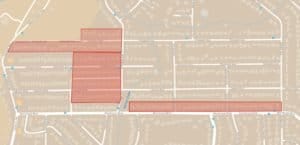Subdivision & Rezoning
What is Subdivision?
According to BusinessDictionary, subdivision is “a tract of land which has been divided into smaller pieces (called lots), usually for the purpose of constructing residences which will be sold individually.”
The information in this article is based on the information found on the City of Vancouver’s website. If you don’t live in Vancouver, but want to subdivide, check the website for your local municipality.
Getting Started
First, you need to find out if it is even possible to subdivide your lot. You will need to contact the City and provide them with the address of the property as well as the legal description, which you can get through the Land Title office.
At this point, the information is unofficial because a full staff review needs to be performed “before the Approving Officer can confirm the feasibility of subdividing your property.” Once you have an idea of whether or not the subdivision can be done, you will need to make an official request in writing or submit a subdivision application.
When submitting your application, you will need to know what type of subdivision you are applying for.
Subdivision Application Types
There are five types of subdivision applications. They are:
- Minor
- Intermediate to major
- Dedications for road or lane
- Joining properties; also called consolidation
- Air Space
Air Space? Yes, you can subdivide air space. According to the City of Vancouver’s website “Air space subdivision” … “is a volumetric subdivision with both horizontal and vertical dimensions. It is commonly used to separate ownership in mixed-use developments such as buildings with both residential and commercial occupants. It allows each component to be financed and owned independently.” If you own a condominium, this subdivision process would have been completed before each residential and commercial unit could be sold.
Under each of the other subdivision types, the City explains what each one is and has a list of requirements that need to be met for each application.
Subdivision Approval Process
The approval process steps are as follows:
- Preliminary proposal
- Formal application
- Proposal review
- Public notification (determined by the approving officer)
- Approval of a proposal or
- Refusal of a proposal
- Obtaining final plan approval
After your subdivision plan has been approved and signed by the approving officer, you have two months to submit and register the plans with the Land Title Office; after two months, you will have to go through the whole process again.

Capilano subdivision plan
Rezoning
What is rezoning?
First, zoning is determined by the municipality in which you live and defines how the property can be used and developed based on where the property is located (neighbourhood) and the City’s visions and goals that are typically set out in their Official Community Plan (OCP).
“Rezoning,” according to the City of Vancouver, “changes how a property can be used or developed.”
When making your subdivision application, you will need to know the current zoning and if you will be making an application to rezone the property.
There is so much information on the World Wide Web to help answer your subdivision, zoning and rezoning questions. If you are working with a designer/contractor, they are also a good source of information to help you through the process.
Building a new house is not going to happen overnight. Sometimes you see buildings go up fairly quickly, but in the background, before the ‘ground was broken’ on the project, a lot of work went into submitting applications, getting plans drawn up, receiving approvals, attending Council meetings and so on. Don’t get discouraged because when you finally move into your newly built home, it will all be worth it.
Contact us at Myhomedesigner.com to see how we can help you through the process. We’re here to help you.
Related Posts
What you should know and do before renovating your house in Vancouver – Part 2
Invest in a good designer to create the best looking home for you
